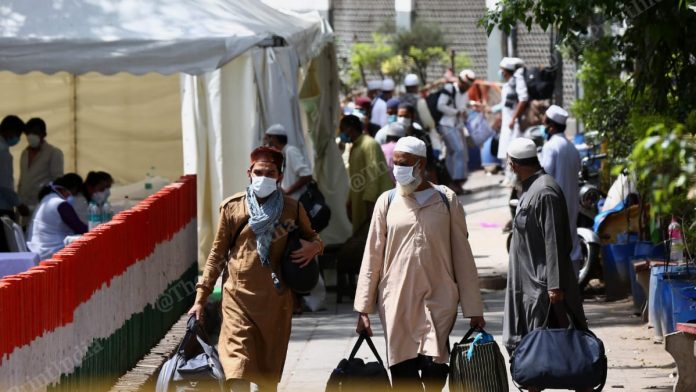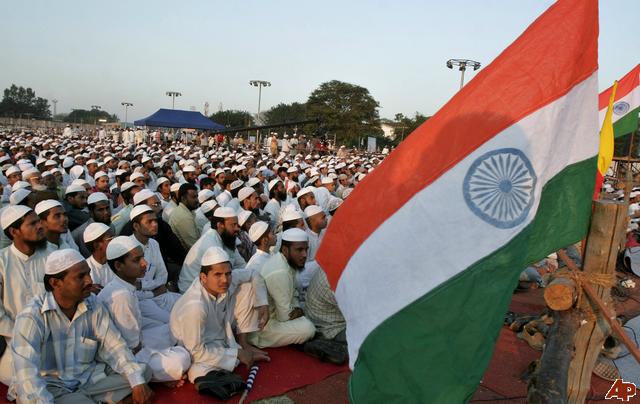
Injustice against Indian Muslim by the BJP government is a quite talk in many quarters in India, but never among those sitting in judgment and delivering justice.
This silence is broken by a division bench of Justice Tanaji V Nalawade and Justice Mukund G Sewlikar of Aurangabad Bench of the Bombay High Court who on August 21, 2020 made some scathing remarks against the government quashing the FIR against 29 foreign nationals and 6 Indians, for attending a Tabligi Jamat congregation in New Delhi in mid- march.
Justice Tanaji V Nalawade and Justice Mukund G Sewlikar rulings are significant on many counts. First, it comes from the sitting judges. Second, both are Hindu judges. Third, both are speaking against the ruling government. Last but not the least; these judges are courageous enough to talk openly about injustices against Muslims being done by this government.
Let’s analyze the judgment passed on August 21, on three separate petitions by the 29 foreigners and six Indian nationals, in connection with the Tablighi Jamaat detention since April 2020.
The first and foremost observation made was about the BJP’s government role in context of the detention of the Tabligi Jamat members. It also links it to Indian Muslim’s protest again government’s order on CAA and NCR.
The bench on August 21 wrote in the judgment that the way Tabligi Jamat members from foreign countries have been treated by the BJP government appears that they were made “scapegoat” for the protests against the Citizenship Amendment Act (CAA).
Justice Nalawade and Justice Sewlikar further said, the way Tabligi Jamatis have been made example in the country, serves as an “indirect warning to the Muslims” that if they protest against government, they may be also subjected to similar vilification as Tabligi Jamat members are facing now.
The Bench noted that there was no restriction against foreigners visiting religious places, or participating in normal religious activities or discourses and pointed out the Tablighis had been holding such gatherings for years. “This activity is held throughout the year and it’s going on for more than 50 years” but no government has found fault, the bench observed.
The Bench further said; “a political government tries to find a scapegoat when there is a pandemic or calamity and the circumstances show that there is a probability that these foreigners were chosen to make them a scapegoat.”
Justice Nalawade and Justice Sewlikar said; “The material discussed shows that no such nuisance was created by the foreigners or Indian Muslims and only an attempt was made by others to create such (an) atmosphere against them.”
Under a paragraph marked ‘Background of Malice’, the Bench discussed what it considered could have prompted the government to issue such directions.
“There were protests… at many places in India from at least prior to January 2020. Most of the persons (who) participated in the protests were Muslims. It is their contention that the Citizenship (Amendment) Act, 2019, is discriminatory against Muslims… They were protesting against the NRC (National Register of Citizens)…
Justice Nalawade and Justice Sewlikar blamed “big”, “unwarranted” “media propaganda” through which an attempt was made to create a picture that these foreigners were responsible for spreading Covid-19 virus in India.”
The government’s action indirectly gave warning to Indian Muslims that they can be harassed in any form and any action can be taken against them.
The judgment further said; it was indicative of the fact that even for keeping contact with Muslims of other countries, action will be taken against them… Similar action was not taken against other foreigners belonging to other religions,” the bench ruled.
“The government cannot give different treatment to citizens of different religions of different countries… Social and religious tolerance is a practical necessity for unity and integrity of India and it is made compulsory by the Indian Constitution,” Justices T V Nalawade and Justice Sewlikar ruled.
They further said; “the Maharashtra Police had acted “mechanically” and charge-sheets had been filed without prima facie evidence and indicated “non-application of mind”.
“It appears that the state government acted under political compulsion and police also did not dare to exercise powers given to them under provisions of procedural law like the Criminal Procedure Code and substantive laws,” the judges said.
Justice Mukund G Sewlikar, one of the two judges of the Aurangabad bench of the Bombay High Court, on August 27, disagreed with the observations made on August 21.
Justice Sewlikar said that he disagrees with the senior judge Tanaji V Nalawade who said that action against the foreign nationals was an “indirect warning to Indian Muslims” after the protests against the Citizenship (Amendment) Act (CAA).
Justice Sewlikar noted in his August 27 order, “I find it difficult to concur with these observations as allegations in this respect are (neither) made in the petitions nor there is any evidence in this regard. Therefore, in my opinion these observations are outside the scope of the petitions.”
However, Justice Sewlikar pointed out that since none of the offences could be proved by the prosecution, the charge-sheets against the petitioners deserved to be quashed.
He maintained that he agreed with the part of the order quashing the FIRs and all observations made by Justice Nalawade, except the one pertaining to CAA protests, on which he had differing views.
There are 900 foreign Tabligi Jamat members from 34 countries who are languishing in Jail since April 2020. They are facing different charges and have been given plea bargain offers to walk free on accepting those charges and paying a fine.
So far more than 600 foreign Tabligi Jamat members have left the country. The Supreme Court of India has given instructions to clear this matter within one month that ends in mid-September.
Among them are 44 foreign Tabligi Jamat members who want to face trial and want to get exonerated as has been the case with the Division Bench of the Bombay High Court or like to face punishment but not want to buy freedom by accepting their crime and pay fine.
Syed Ali Mujtaba is a journalist based in Chennai. He can be contacted at [email protected]
SIGN UP FOR COUNTERCURRENTS DAILY NEWSLETTER













































